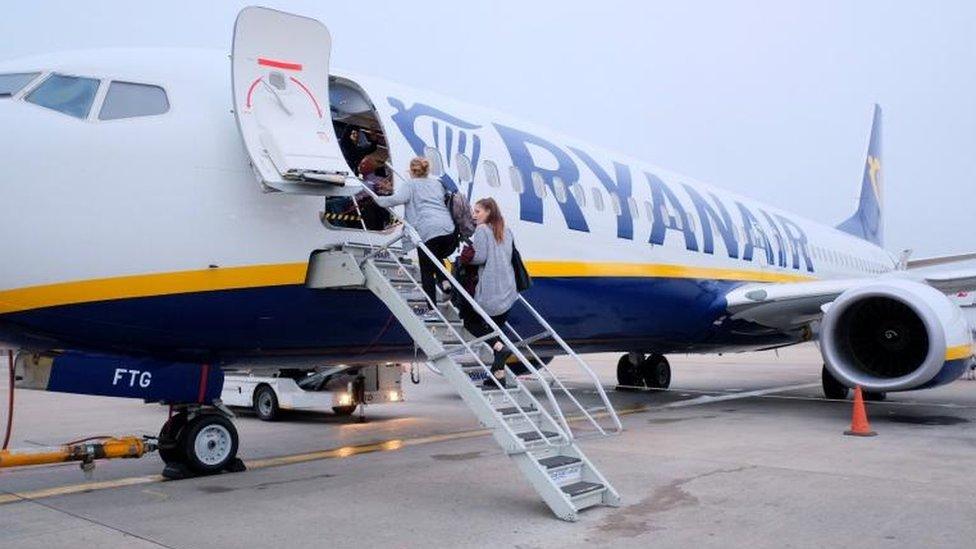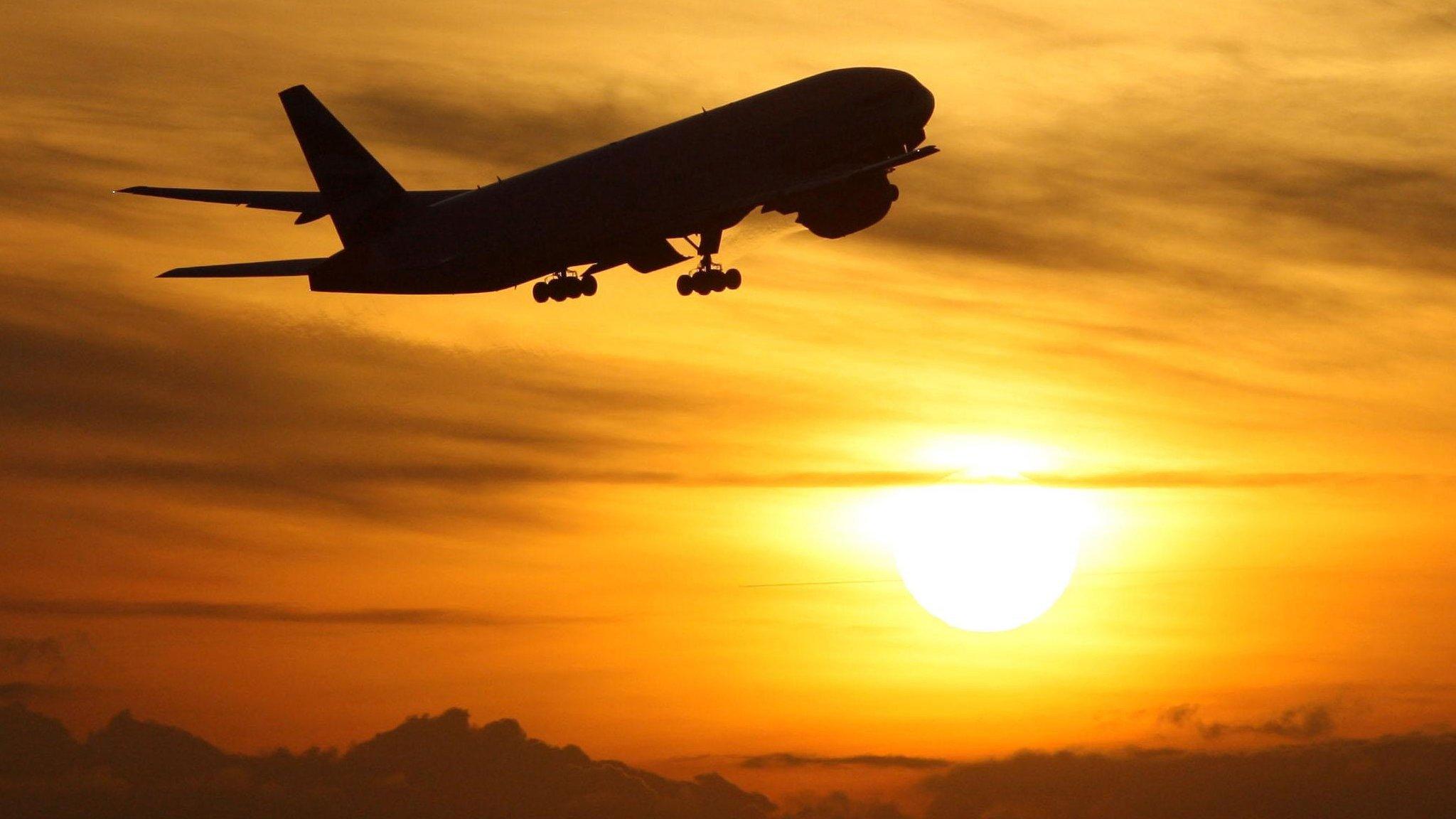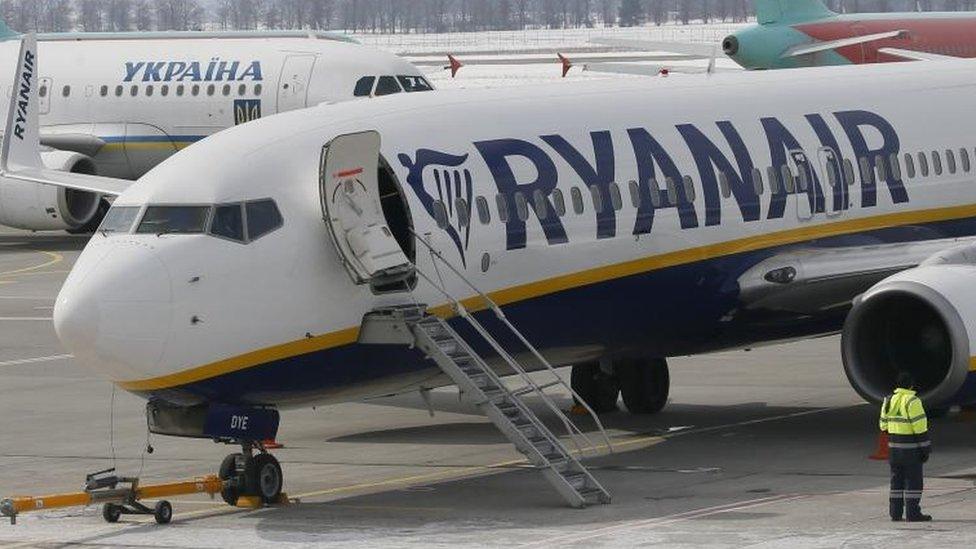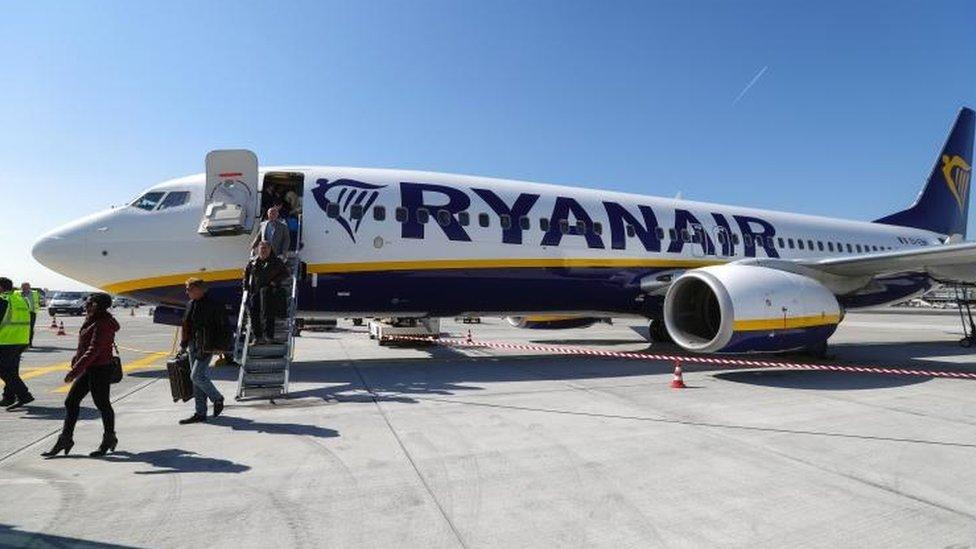Ryanair reports soaring profits but warns of headwinds
- Published
- comments

Ryanair has reported record annual results, despite it having to cancel thousands of flights in September due to problems with pilots' rotas.
The Irish airline said profits after tax rose 10% to €1.45bn (£1.27bn), despite the wave of bad publicity.
However, it warned higher costs would make the year ahead more difficult.
The outlook for the coming year was "on the pessimistic side of cautious", chief executive Michael O'Leary said in a statement.
The carrier, Europe's largest low-cost airline, said passenger numbers had risen by 9% to 130.3 million in the 12 months to the end of March,
That increase was stimulated by lower fares, it said, with Germany, Italy and Spain the three largest growth markets.
Ryanair said it expected to carry 7% more passengers in the coming year, but said costs would rise by 9%, including staff costs and the oil price. However, fares are expected to remain unchanged.
Last year, mistakes with pilots' rotas led to about 20,000 flights being cancelled.
Problems began after the airline admitted in September it had "messed up" pilots' holiday, leaving it unable to staff all its scheduled flights.
Following reports that pilots were leaving the firm, Mr O'Leary wrote to the Ryanair's pilots to offer them better pay and conditions. And in December, Ryanair said it would recognise trade unions, something the airline had always resisted, in order to avoid further disruption to flights over the busy Christmas period.
Since then, Ryanair has begun to recognise trade unions on a country-by-country basis, and its Irish union is currently threatening to ballot pilots over working practices.
Pay increases
Victoria Moores, European editor for Air Transport World, told the BBC's Today programme that Ryanair was a strong performer in the aviation sector, thanks in part to its success at filling aircraft to near full capacity.
"If you look at their load factor, which is the percentage of the aircraft that is filled, they are filling 95% of every aircraft on average."
A load factor of between 60% to 70% was more usual 20 years ago, Ms Moores said.
But she added last year's crisis over rosters was prompting change at the airline.
"What we've heard in these results is a move towards pay increases," she said.
Ryanair's statement said it expected the market for experienced pilots in Europe to remain tight, putting further upward pressure on staff costs.
- Published21 May 2018

- Published15 May 2018

- Published5 February 2018
